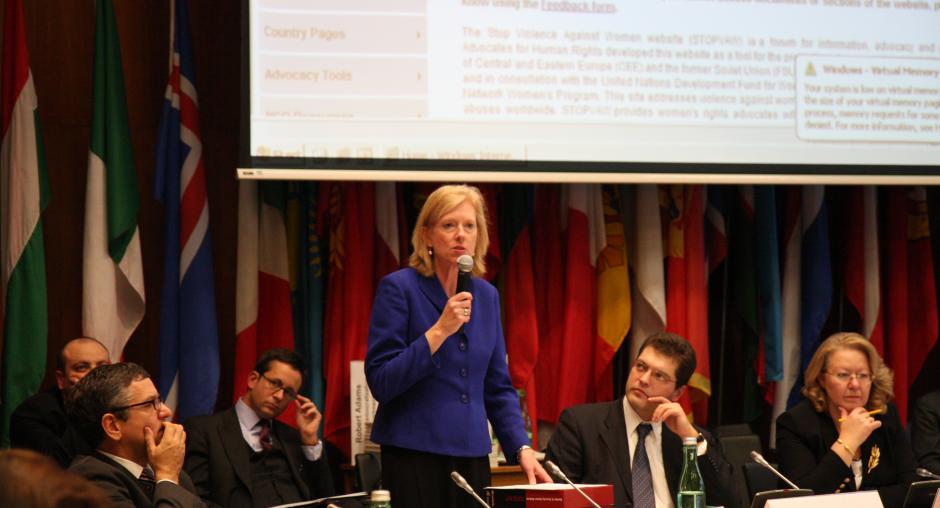OSCE meeting on gender equality begins with calls for increased efforts to combat violence against women

VIENNA, 5 November 2009 - A special OSCE meeting on gender equality started today with participants calling for increased efforts by participating States to prevent violence against women, prosecute perpetrators and provide adequate protection to victims.
"A life free of violence is an inalienable and fundamental right of all, women and men alike. Nevertheless, women continue to be exposed to gender-based violence, within their homes and in their communities, sometimes perpetrated or condoned by state actors," said Ambassador Janez Lenarcic, Director of the OSCE Office for Democratic Institutions and Human Rights (ODIHR).
He said violence against women cannot be effectively fought if its root causes are not acknowledged at the highest level of state authorities: "Combating harmful stereotypes requires more than one-off measures that may look nice on paper; it requires action at all levels of society, in different forms, through various means, from education to politics."
Ambassador Eleni Sourani, representing the Greek OSCE Chairmanship, stressed that gender equality and a life free of violence were at the core of the OSCE's values and constitute preconditions for healthy societies and strong states. "This meeting is part of our continuing efforts at the OSCE to discuss and promote concrete steps in ending violence against women," she said.
The keynote speaker at the opening, Cheryl Thomas of Advocates for Human Rights, said legal reform banning violence against women was an important first step, but not sufficient.
Key elements for a successful response, she said, include the realization that violence against women arises out of the unequal position of women in society, a clear message of zero tolerance for violence, training and education, as well as coordinated community responses involving monitoring of laws and practices.
At the two-day meeting, organized jointly by the Greek OSCE Chairmanship and ODIHR, some 200 government and civil society representatives from the OSCE's 56 participating States will discuss ways to improve victim protection, investigation and prosecution of perpetrators, as well as prevention of violence gender-based discrimination.
